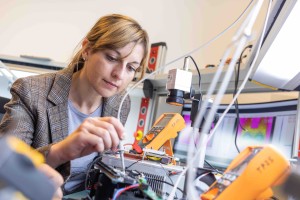Urban Gardening
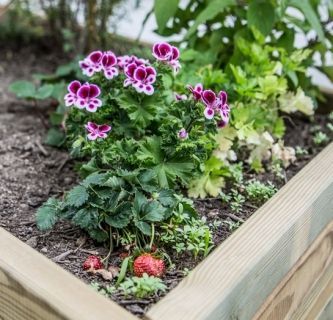
In the academic year 2014/15, students of the Construction Design and Economics and Sustainable Food Management programmes developed concepts for the design and construction of innovative raised plant beds, some of which can also be used as urban furniture. A jury selected the best projects; the winning project was realised on the FH JOANNEUM campus and is also designed to encourage neighbourhood gardening projects.
Turning urban wasteland into gardens where you can grow fruit and vegetables for your own consumption is the goal of the urban gardening movement that is spreading around the globe. The aim of the joint course of the degree programmes Construction Design and Economics (BBW) and Sustainable Food Management (LEB) in the 2014/15 academic year was to use common and cheap materials to plan raised plant beds for urban gardening and implement them in Graz-Eggenberg. Mixed BBW and LEB teams looked for suitable locations on the FH JOANNEUM campus as well as plants and calculated the costs of the innovative raised plant bed designs.
A jury consisting of representatives of FH JOANNEUM, Gebäude- und Bau-Management Graz GmbH (GBG), the STA EggenLend community support group and the district representative of Graz-Eggenberg eventually chose the three winning projects. The projects were also presented to the interested public during the "Grazer Architektursommer" architecture event in 2015.
The winning projects
(with illustrations)
1st prize: 3er
The triangular model 3er not only serves as a raised plant bed, but also as a seat. This piece of urban furniture impresses with its spatial and functional versatility. The three levels of the 3er can be used in different ways depending on requirements. One module can be assembled from six identical elements and combines the aspects of harvesting and social encounter.
Since summer 2015, the 3er module has encouraged residents of the district to come to the FH JOANNEUM campus and try their hand at gardening. The campus of the university of applied sciences serves as a testing ground for later communal gardens in public areas. The raised plant beds are also used for teaching and research in the Sustainable Food Management programme: In 2016 the students grow chillies here to measure their hotness and to compare their readings with taste sensations. If the 3er module on the campus proves successful, it will also be set up in other places around Graz.
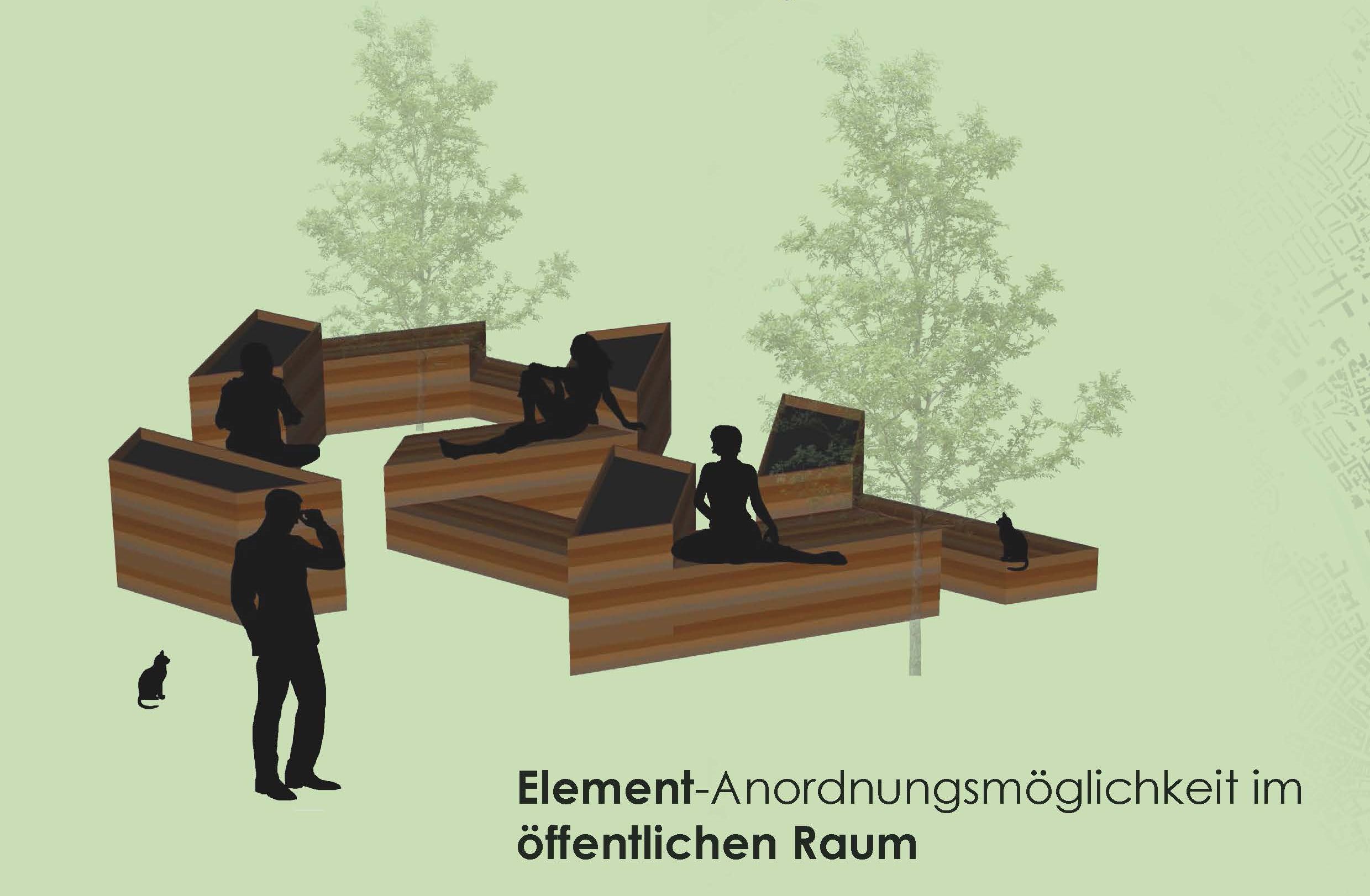
2nd prize: It's already there
In the interest of sustainability, the project "It's already there" will not add new elements to the public space, but rather make better use of what's already there: Unused or unnoticed spaces such as niches, pedestals and troughs are adapted and turned into garden areas using troughs, boxes etc. The specific concept can only be used on the FH JOANNEUM grounds; however, the same principle can be applied to regenerate and revegetate other places.
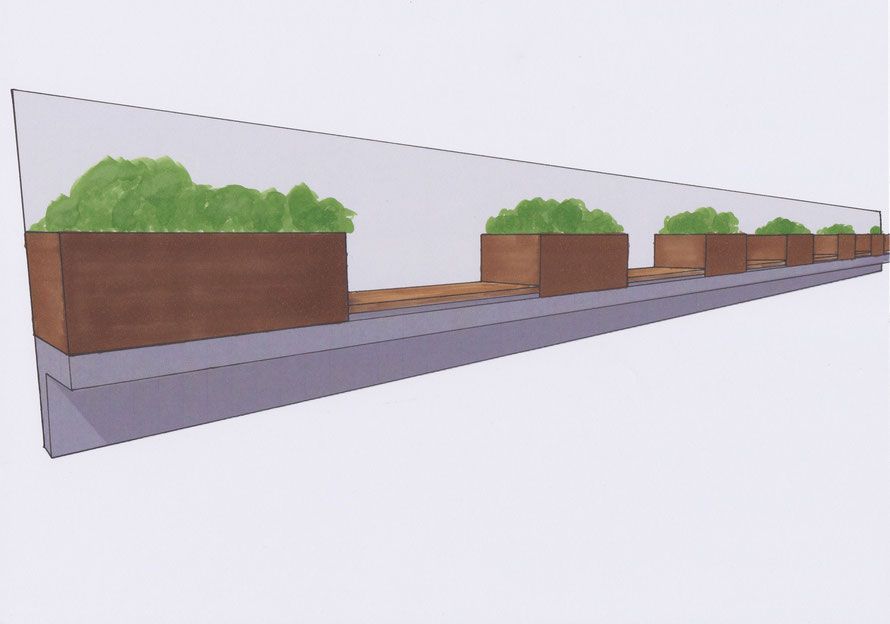
3rd prize: Blox
Three-layer panels are the material used for the raised plant bed model "Blox". Its modular structure encourages users to play around with the various design options. Blox is not just a raised plant bed, it is also a multi-functional eye-catcher with a message.
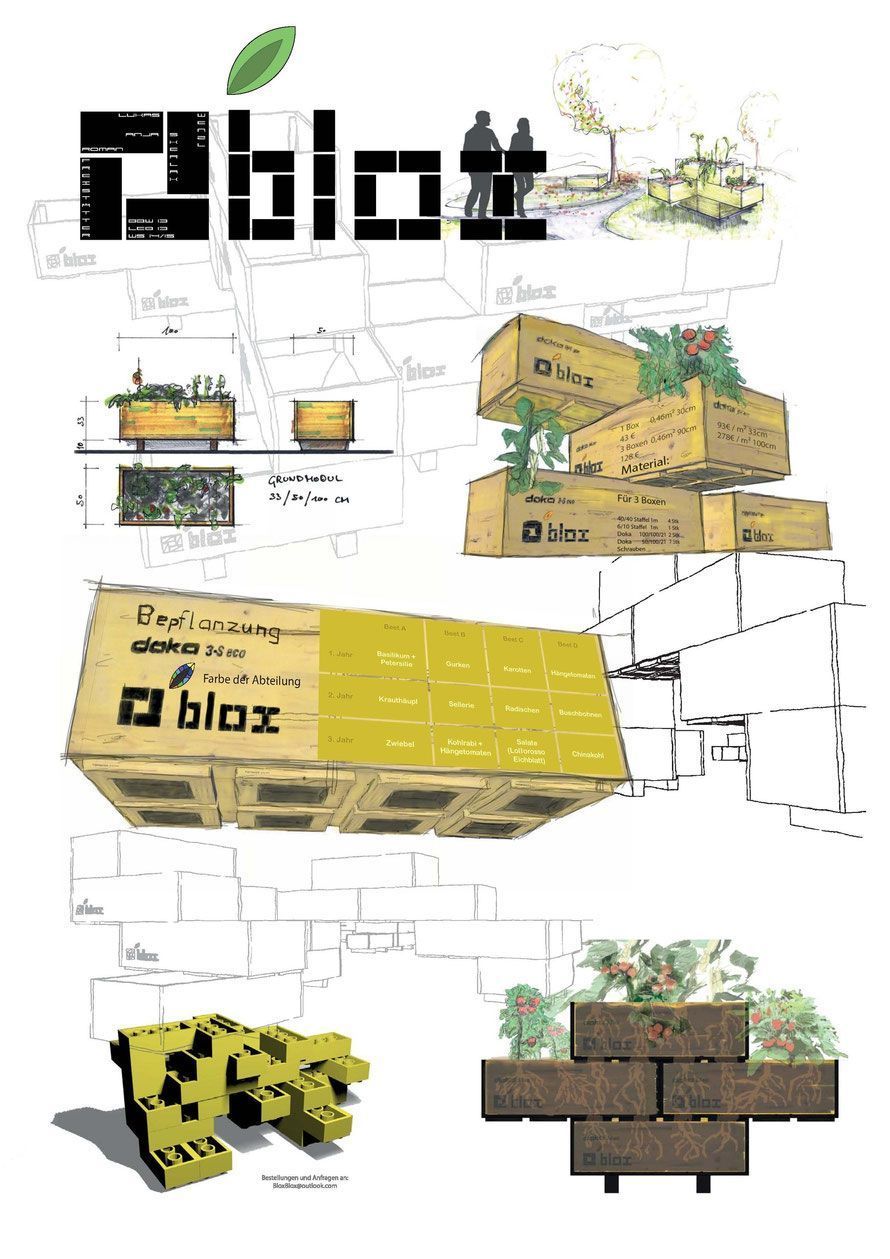
Most original idea: G-Modul
In physics, the German term “G-Modul” denotes a material constant. In the urban gardening project of FH JOANNEUM it is used in a more narrow sense to refer to the basic construction set of another raised plant bed design: the beverage crate. The advantage of this module: The basic shapes can be combined with each other in a variety of different ways, like play bricks. It is also weather-resistant and durable. – The jury awarded this project the title "most original and actionist idea".
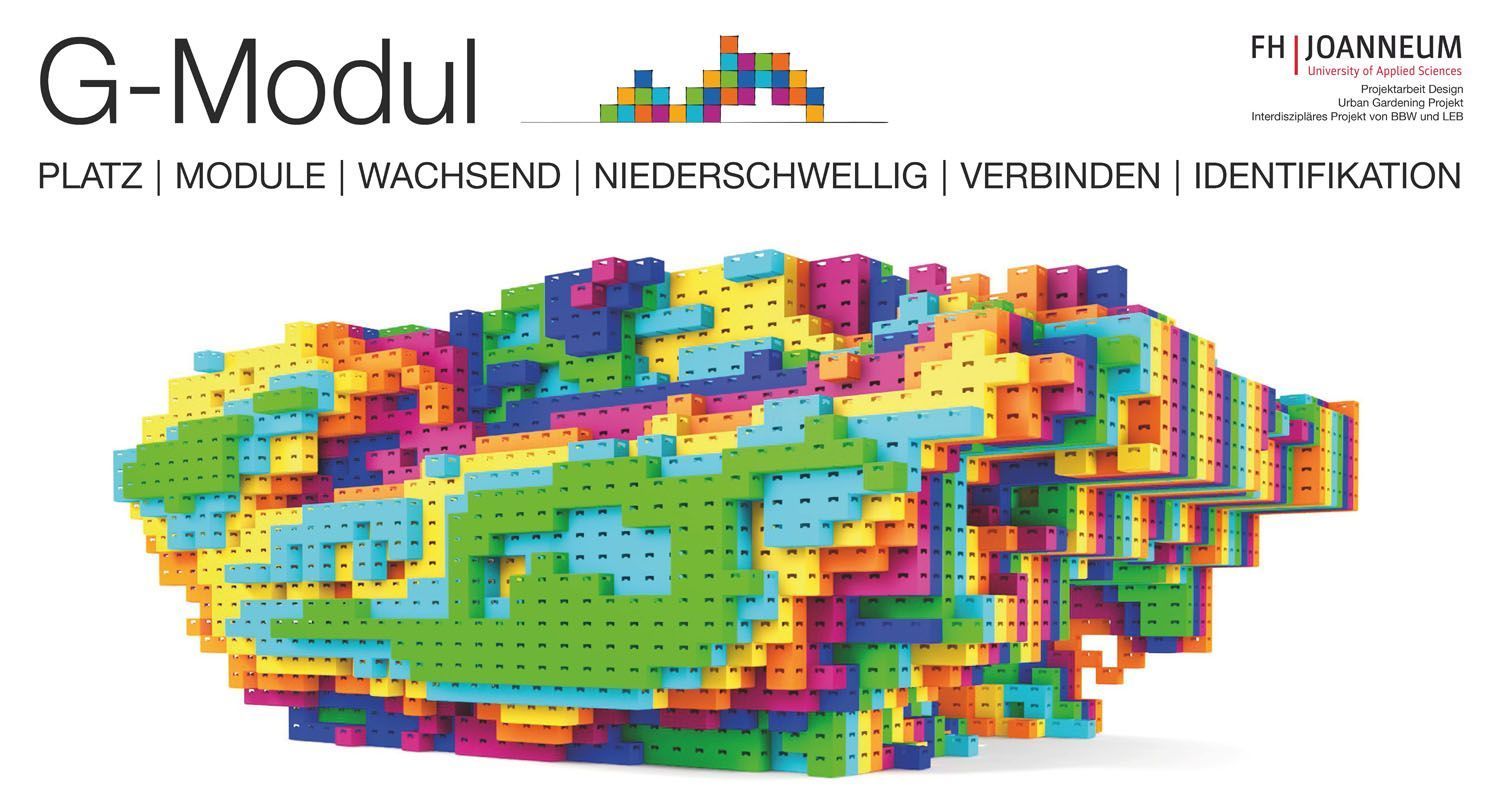
For more information about all 13 raised plant bed designs, go to the project website.



